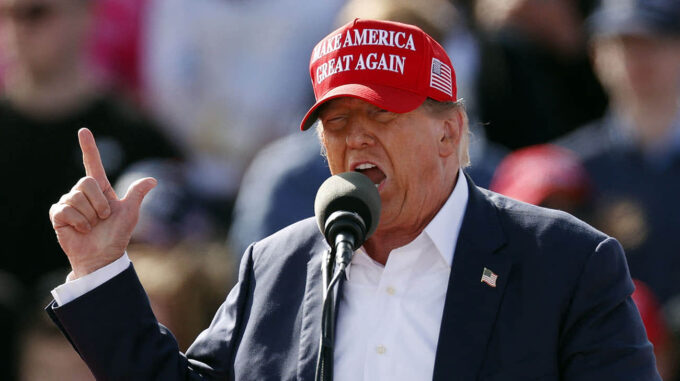Donald Trump sharply criticized the Digital Equity Act, calling it “racist” and potentially unconstitutional, and threatened to veto it

On Thursday, May 8, former U.S. President Donald Trump once again drew public attention with his harsh comments regarding a recent legislative document aimed at ensuring equal access to high-speed internet across the country. His statements sparked lively discussions among politicians, experts, and social activists. The law, known as the Digital Equity Act, was signed into law by current President Joe Biden early in his term as part of a large-scale infrastructure program amounting to over one trillion dollars. The primary goal of this legislation is to address the digital divide that prevents residents of rural and remote areas from accessing fast and reliable internet. The law provides $60 million in grants for local and state governments, as well as an additional $2.5 billion for implementing developed plans. Unlike typical legislative acts, this document aims to support a wide range of citizens: veterans, seniors, people with disabilities, residents of rural areas—all those experiencing digital isolation. At the same time, it also pays attention to ethnic and racial minorities, which drew criticism from a politician who cynically called the law a "race-based payout." On his social media page, Trump issued a statement accusing the law of being "racist" and noted that, in his view, it constitutes "race-based payments." However, experts emphasize that the law’s text hardly mentions race, except perhaps the possibility for racial minorities to benefit from the program, but it does not include any discriminatory provisions or preferences for specific ethnic groups. The law is intended as a tool to reduce digital inequality overall and does not create special privileges for particular groups. In his social media statement, Trump claimed the law is "racist" and expressed the opinion that it involves "race-based payments." Experts, however, point out that the law’s wording scarcely references race, aside from potential access for racial minorities, and contains no explicit discriminatory provisions or benefits for specific ethnic groups. Analysts suggest that Trump’s claim has a political undertone and forms part of his strategy to attract attention and reinforce his position among conservative voters who fear "marginalization" of minorities and new policy initiatives related to equal opportunities. At the same time, human rights advocates emphasize that this law is an important tool for overcoming digital inequality, which is especially acute in rural and low-population regions where access to high-speed internet remains out of reach or very limited. Therefore, in the context of political battles and debates around racial equality, many will view this law not only as a means of infrastructure development but also as a subject of active discussion. In any case, Trump's position on this legislation signifies a new phase in his media rhetoric and political course, especially concerning issues of racial equality and social justice in America.

